Why I do It and How to Start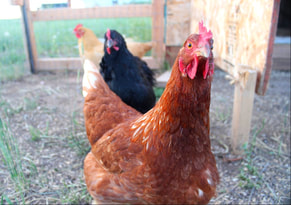 "Did someone say fermented chicken feed?" "Did someone say fermented chicken feed?" It wasn't until last year that I first heard about fermented chicken feed. It was a foreign concept but I was intrigued and wanted to learn more. The health of our flock has always been a priority to me. This is why we purchased some of the high-end soy free, organic chicken feed for many years. But what other benefits would this bring to our homestead?? Benefits of Fermented Chicken Feed
Better Hen HealthIt's no secret fermented foods are good for the gut. This also applies to our feathered friends. Lacto-fermentation is a process that preserves and enhances food, just like sauerkraut. During this process, phytic acid is neutralized making it easier to digest the grains, seeds, and legumes while creating new vitamins such as folic acid, riboflavin, and niacin. All this fermented food will boost your flocks immune function, aide digestion, and help them better absorb the vitamins and minerals. The digestive tracts of chickens given fermented feed shows resistance to infection with acid sensitive pathogens such as E. coli and salmonella. Healthy Hens = Better eggs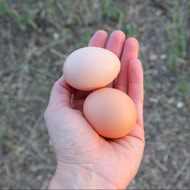 The added vitamins and better absorption your flock is experiencing means better, more nutrious eggs for you! Studies have shown that chickens given fermented feed have heavier eggs with thicker shells. Fermented feed does not increase egg production, but knowing my eggs came from chickens that are absorbing the most nutrtion from their feed gives me great satisfaction! Cut Feed CostsBy fermenting chicken feed, you cut your costs two ways. First, soaking the feed in water incorporates all the "fines." These are the powdery particles that end up getting tossed into the wind, trampled in the dirt and chicken coop floor. By creating a mash of sorts, all those loose particles are saturated and the chickens are able to gobble them up. Second, the fermented mash fills the hens up more quickly. Your flock will eat less when give fermented feed partially because they need less to get the nutrion they need and also due to its density. Water consumption also decreases. The fermented mash contains water and thus the flock will desire to drink less. This is not only a cost savings but a time savings now that I have to refill the waterer less. If you are raising meat birds, feremented feed will increase weight gain. Your meat birds will be heavier and ready for the dinner table much quicker which equates to less feed and more savings! The added time it takes to mix the water and feed is minimal when you add up all the benefits. Simple Steps to Fermented Chicken FeedFor my flock I use a five gallon bucket as the fermentation chamber. You can buy these awesome screw top lids for your buckets that make it a breeze to get in and out. Fill your bucket or container 1/3 full with feed. I mix my own chicken feed but you can do this with chicken pellets, crumbles, or scratch grains as well. Now add de-chlorinated water to about 2/3 full in the bucket. This is enough to cover the feed by a few inches of water and help prevent spoilage. Most municipal water supplies contain chlorine, added to control bacterial growth. But we want bacteria to grow, good bacteria! So if you have chlorinated water, leave your water out for 24 hours so the chlorine can evaporate. As the grains expand in the liquid you may need to add more water. Cover the bucket and let sit for about three days. When you see bubbles in your bucket you will know its ready. The bubbles are the byproduct of the lactic acid bacteria, carbon dioxide. When it's time to feed the flock I give the batch a "smell test." As long as it smells sour, similar to sourdough bread, and not spoiled I know it's good. If you have a string alcohol smell or yeasty smell then dump that batch out and start again. When it's feeding time, give your chickens what they can finish in that sitting. The fermented food is most efficient when enjoyed fresh. I feed the chickens twice a day, usually giving the fermented feed in the morning and keeping a feeder of dry food available throughout the day. Have you fermented chicken feed before? If so, what challenges did you face?
Where I buy my chicken feed...Azure Standard has an amazing selection of animal feeds. You can purchase the premixed feed or pick and choose which single grains, greens, and supplements and mix your own. This is what we do! I also purchase our grassfed butter and pantry staples here! By using this link, if you decide to make a purchase over a certain amount, I will receive a referral fee. This doesnt cost anything extra for you, but helps me buy more feed. ;)
4 Comments
9/8/2022 03:36:52 am
Please send me you beginners guide to fermented chicken feed. Thank you
Reply
Francesca
10/5/2022 10:36:28 am
Thank you for leaving a comment! This blog post is the beginner's guide. There will be an ebook eventually though!
Reply
Kat
1/21/2023 01:52:08 pm
How long does the fermented feed keep for?
Reply
Francesca
3/15/2023 01:19:31 pm
It will depend. Heat accelerates the fermentation process. If the weather is warm, your feed will ferment quickly. I do a smell check on mine. If it smells pleasant, then its good! If you see mold or smell something "off" you would toss it.
Reply
Your comment will be posted after it is approved.
Leave a Reply. |
AuthorFrancesca, wife and mother of three, eagerly shares day-to-day life on her ten acre farm in northern Colorado. Categories
All
Archives
March 2023
|
|
Copyright © 2022 3 Seeds Farm
Site powered by Canopy Creative Marketing |
|

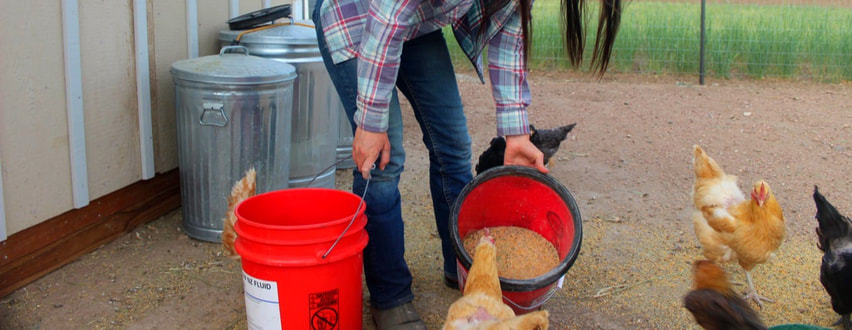
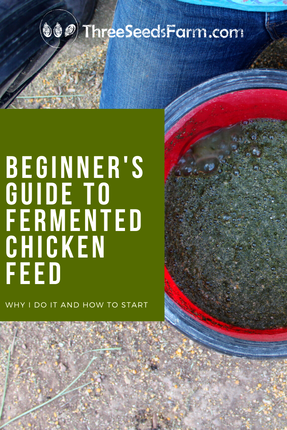
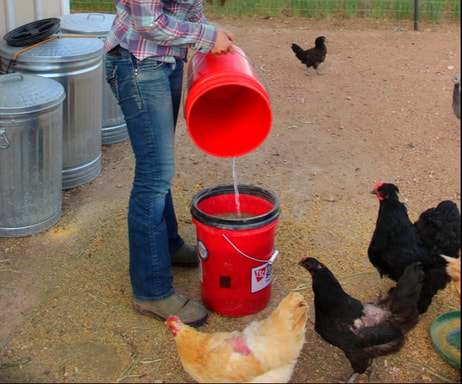
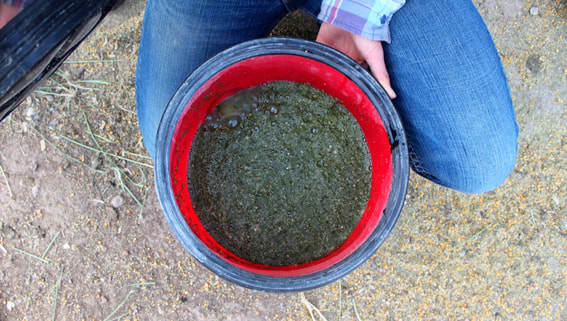
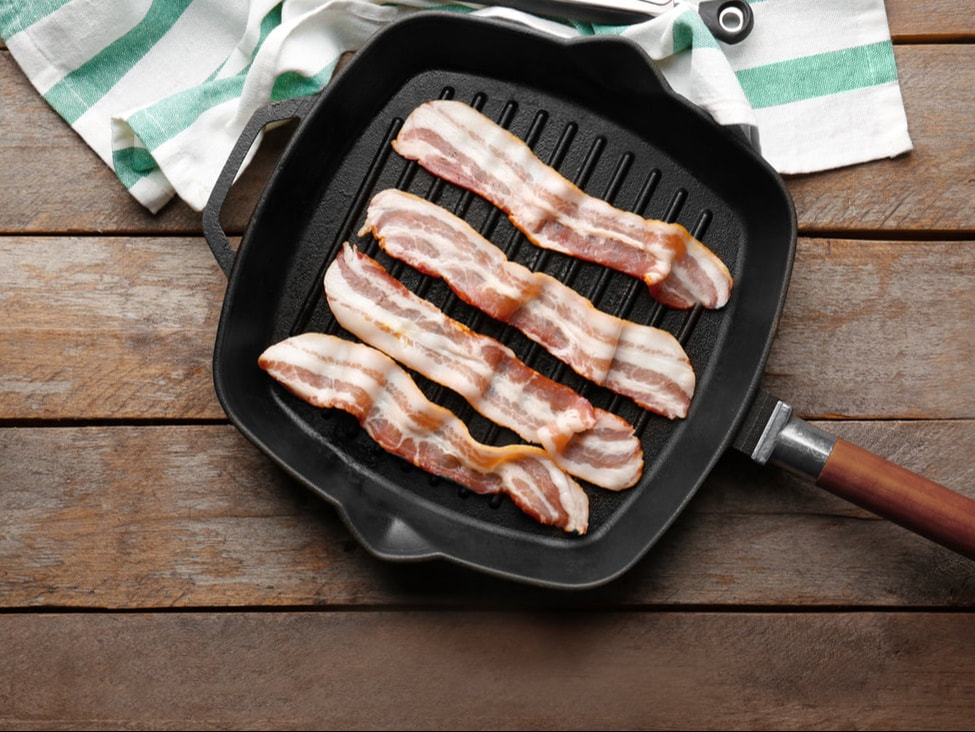
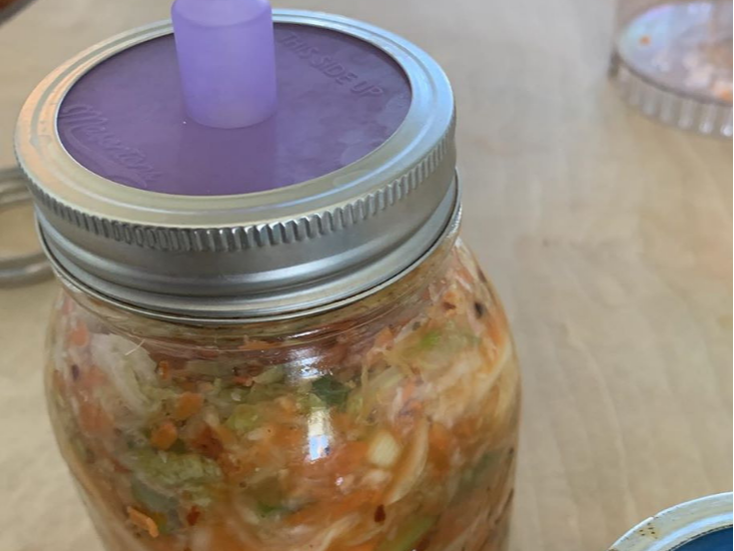

 RSS Feed
RSS Feed
